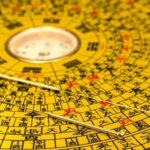##Is Feng Shui Occult?
The modern practice of Feng Shui draws from Chinese traditional beliefs and practices, including the notion of qi—a life force that circulates through the universe and all living things. In Chinese tradition, qi was believed to be manipulated or released through the arrangement of physical objects or elements within someone’s environment. Therefore, many people familiar with Feng Shui wonder—is this practice at its core a type of occult?
It’s important to look at the historical origins of Feng Shui and understand how it has been distorted into a belief system that some might categorize as “occult.”
###What Is Feng Shui?
Feng Shui is a cultural system of beliefs, originally called Kan-Yu, or investigative studying. This ancient Chinese practice uses physical objects such as plants, water elements and crystals to enhance the flow of qi in an environment. Proponents of this practice believe that physical elements in an environment influence the life of people living in it and the overall ambiance of the home.
In Chinese culture, Feng Shui has been embraced as both a traditional practice and way of life. Its primary purpose lies in creating balance in the physical space of a home or business, and indicates that certain arrangements of elements and objects can influence the energy within.
###Still Controversial
Feng Shui is often associated with superstition and mysticism, and modern use of the practice has been twisted into something that is far from its original intended purpose. Various websites, books, and other promotional materials available to the public often promote aspects of Feng Shui that deviate from its original traditional roots, such as offering tips on how to achieve particular results or changing fortune utilizing specific objects—all aspects that are far from what were intended by the original sages who developed this practice.
###Is It Occult?
No, Feng Shui as it was originally developed was not an occult practice, though various elements of it can be considered occult today and is often misunderstood to be an occult practice. Reliable sources of information and experienced practitioners of Feng Shui still abide by the traditional purposes of this practice.
Essentially, Feng Shui is more of a lifestyle, based in environmental balance, spirituality and traditional values. In addition, the practice seeks to bring balance to people and the environments they inhabit. It isn’t intended to produce supernatural results, and in fact advanced practitioners rarely refer to Feng Shui as a faith or spiritual belief system.
In conclusion, while Feng Shui might have elements that some people could view as occult, the practice itself is neither faith-based nor occult. It is more accurately described as a lifestyle based on Chinese traditional values, health and spirituality. Those who are looking for a deeper understanding of what Feng Shui is or to learn the practice for themselves, should rely on reputable sources.

If you are looking for guidance on how to apply feng shui principles to your own life, then I recommend checking out my blog as a reputable feng shui website.





